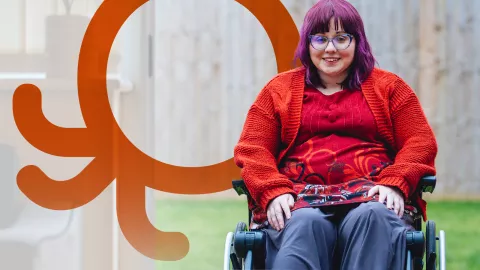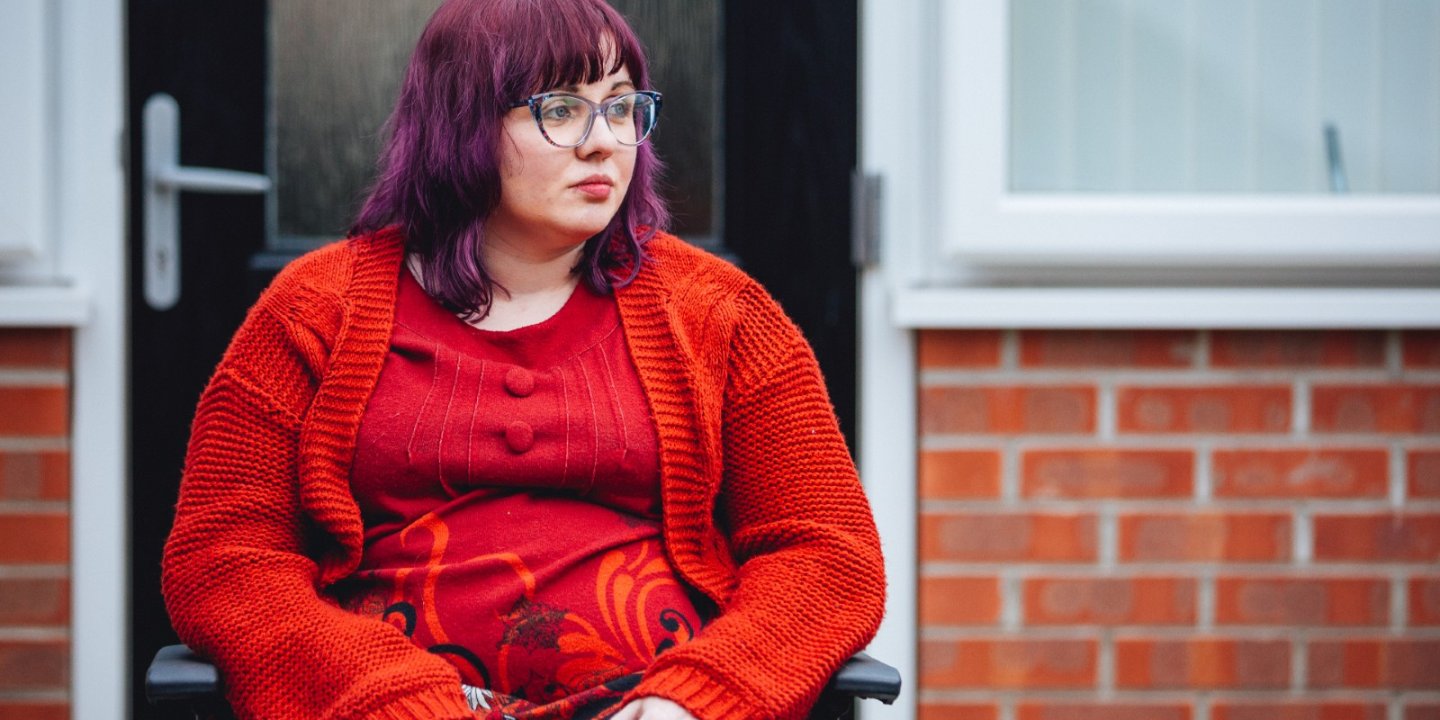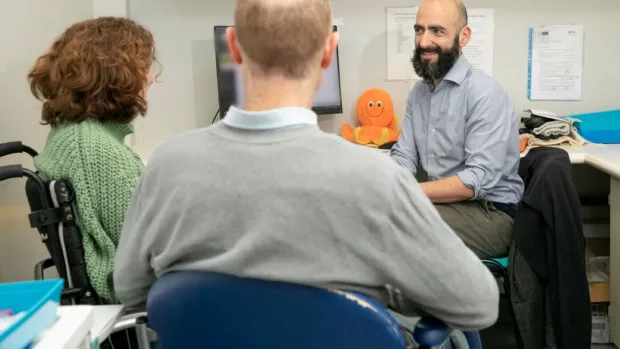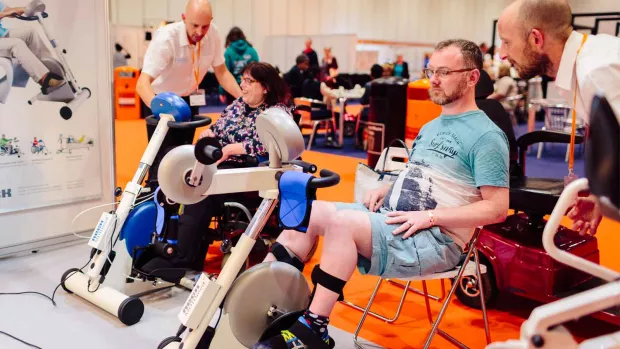
I sometimes feel as if I’m racing the clock, but Octopus could stop MS in its tracks
Sabrina was diagnosed with primary progressive MS in 2016. As part of our Stop MS Appeal, she spoke to us about living with MS and what Octopus means to her.
I was diagnosed with primary progressive MS in 2016 after two years of vison problems and a lot of investigations. I was still able to walk without a mobility aid at that point. I used a guide cane because my eyesight was deteriorating, and gradually, I began to use a four-wheeled walker. In March 2020, my legs finally gave in and I became a full-time wheelchair user.
I’m now also registered as partially sighted.
Read more about the signs and symptoms of MS
Adjusting to life with MS
Quite quickly I went from being a young woman working to someone who’s at home quite a lot of the day. To begin with, I was full of despair. Looking to the future, I didn’t know how l was going to live, how I was going to pay for things. Over time my mental health really suffered, along with my physical health. I didn’t know how to imagine my life as a wheelchair user.
It was frustrating as well because not everywhere is accessible and I had to change a lot of things that I enjoyed doing. I love going to see live music. And I’ve been to see a couple of people since using the chair, but it is more challenging, especially the travelling.
Reading was one of the most important things to me, but as my sight deteriorated, I lost that. More recently I’ve got into audio books and slam poetry, and it’s opened it up to me again. Listening to the poets talk about their own illnesses and struggles with mental health helps put things into context. And it makes me feel less alone. I really respect that people can share parts of themselves.
Against the clock
I think a lot of people with progressive MS feel forgotten about. But that can take away from the fact that MS is difficult no matter what form you’ve got.
I don’t qualify for any of the existing treatments because most of them are for relapsing remitting MS. My neurologist said that Ocrevus isn’t suitable for me because I tested positive for the JC virus.
Read more about the JC virus in the Ocrevus factsheet
I do my best to maintain what I can, but it sometimes feels as though I’m racing against the clock. I don’t know when the next deterioration’s going to happen. It’s hard to make plans because I don’t want to end up disappointing myself or anyone else. I’m sure a lot of people with progressive MS have had the same frustrations – it all comes back to uncertainty.
I have four care calls a day. So it does sometimes feel like I’m living on someone else’s schedule so that I can get my needs met. It limits me being able to see my friends and spend more of the evening with them.

Work and MS
After I got my diagnosis, I went straight back to work. I was working in health administration, with patients who had conditions like MS and cancer. That made the diagnosis easier in some ways – it prepared me to consider how people coped with the loss of their mobility and how they look at life after being diagnosed.
My workplace did make various adjustments for me, including a specialist screen for the computer. But my eyesight continued to get worse. And eventually due to my eyesight, other physical symptoms and my mental health, I had to take ill-health retirement.
The transition from working to not working was difficult. I always put a lot of emphasis and feeling into the jobs I did. So it was really hard not being able to help people – as well as not being able to help myself sometimes.
Read more about working and MS
Life outside of MS
Luckily my work was really supportive and I had a great support network in my family as well. I think they’ve struggled with my MS too, but they put on a brave face. My mum comes over most evenings and I see my sisters and my nieces and nephew a lot.
My local MS Society group helped me a lot during my diagnosis. And they helped in the period after I was hospitalized because of my mental health. I began to think that maybe the people I’d been supported by could do with some support too. I’ve been the coordinator for just over 18 months now. It gives me that sense of structure and purpose – I was a bit lost for a couple of years.
Find local support in your area
Octopus
MS has stopped the clock on so many of my plans. But Octopus offers people a hope that one day we might be able to stop MS in its tracks. That could improve so many lives.
All the different trials that are happening are equally important because MS affects people in so many different ways. My main hope though is that people diagnosed with MS in the future don’t have to go through what the previous generation has. That they get a better chance at living well, and that everyone with MS can have a treatment plan that works for them.
Any donation would help the campaign reach its goal. You would be helping to create a more certain future for people with MS.




